Notice
Social mix strategies in urban renewal: paradoxical effects ? [VO] / Christine Lelévrier
- document 1 document 2 document 3
- niveau 1 niveau 2 niveau 3
Descriptif
Social mix strategies in urban renewal: paradoxical effects ? [version originale en anglais] / Christine Lelévrier. In "Mixité : an urban and housing issue? Mixing people, housing and activities as urban challenge of the future", 23ème colloque international de l'European Network for Housing Research (ENHR), organisé par le Laboratoire Interdisciplinaire Solidarités, Sociétés, Territoires (LISST) à l'Université Toulouse II-Le Mirail, 5-8 juillet 2011.
Plénière 4 : Approaches, pratices and challenges of mixité in different urban contexts, 7 juillet 2011.
Social mix is a powerful category of housing and urban policies in France. The idea that urban and social diversity is a condition for a “balanced” and “peaceful” city life is not new and almost as old as urban planning and social housing. But, the strength of this notion has increased since the middle of the 1990’s. As in other countries, (the French) national government and local authorities consider social mix as a condition for community cohesion and social inclusion, a sort of public answer to poverty and ethnic concentration in cities and more recently, as a principle for sustainable development and territorial equality (Fenton, Turnstall, 2006). As in other countries as well, housing and especially social housing on one hand, area-based policies on the other hand, are the main public tools for implementing social mix strategies. In 2003, an ambitious urban renewal programme, focused on deprived neighbourhoods and based on housing diversification, followed up the debate about perverse effects of social mix strategies applied to poor areas.
- Are urban renewal strategies successfull at diversifying housing and population in the neighbourhoods ?
- Does social diversification mean more social capital and social interactions in the neighbourhoods ?
- What are the benefits from urban renewal for the inhabitants, the “outsiders” and the “managers” of those neighbourhoods ?
The findings from research conducted since 2004 highlight two mains processes of change: re-clustering and fragmentation (Lelévrier, 2010). Those urban and social effects could be seen as paradoxical ones, in reference to social mix public attempts, proceeding from a holistic and dualistic spatial representation of the city and the neighbourhood: instead of mixing, urban renewal just displaces poverty and instead of reenforcing cohesion, it enhances boundaries and distance between social groups. But the assessment could be different if the new private small residences are the opportunity for the “neighbourhoods children”, part of them coming from the immigrant families, to upgrade their residential careers and stay in the familiar neighbourhood while being able to keep social distance… Those changes encountered not national but local social housing managers -a way to stabilize “good tenants”, as well as private one- a way to endow their investments.
Thème
Documentation
Bibliographie sélective
- Les politiques de l'habitat et le creusement des inégalités sociales liées au logement. Jean-Claude Driant. In Benoît Bréville, Christine Lelévrier et al., Ville et logement : quelles politiques ? Paris : La Documentation française, janvier 2011, 104 p. Coll. Regards sur l'actualité.
- Pratiques de logeurs : de la mixité aux processus de regroupements. Christine Lelévrier. In Marie-Christine Jaillet, Evelyne Perrin, François Ménard, Diversité sociale, ségrégation urbaine, mixité. Paris : Plan Urbanisme Construction Architecture (PUCA), 2008, Coll. Recherches n°180.
- Les « renouvellements urbains » en Europe : quels défis pour le logement social ? [powerpoint]. Christine Lelévrier, Christiane Droste, Hedvig Vestergaard, Frank Wassenberg. In L’avenir du logement social en Europe /The Future of Social Housing in Europe. ENHR-Réseau socio-économie de l’habitat, colloque international. Paris, École des Ponts et Chaussée, 22-23 novembre 2007. [En ligne sur un site dédié].
- Les mixités sociales. Christine LELÉVRIER (dir). Problèmes politiques et sociaux n° 929, La Documentation française, octobre 2006, 120 p.
- La mixité sociale, une référence européenne partagée ? Comparaison européenne à partir de la référence française : Allemagne, Espagne, Portugal. Jean-Claude Driant, Férial Drosso, Christine Lelévrier. Université Paris XII / IUP Créteil / PUCA, septembre 2006, 4 volumes.
- De la mixité à la gestion des territoires. Quelles politiques de la ville pour les villes nouvelles ? Christine Lelévrier. In Politiques et marchés du logement dans les villes nouvelles. Quid de la mixité sociale ? Actes de la journée d’étude du 19 avril 2005, Ministère du logement, Programme interministériel Histoire et évaluation des villes nouvelles françaises, novembre 2005, pp. 103-106. [en ligne sur le site du Centre de Documentation de l'Urbanisme].
- Mixité : d’un idéal social aux incertitudes des politiques urbaines. Christine Lelévrier. In « Mixité », Urbanisme n° 340, janvier-février 2005, pp. 39-43.
- Mixité sociale : un concept opératoire ?. Sigrine Genest, Thomas Kirszbaum, Christine Lelévrier, Hervé Vieillard-Baron. Profession Banlieue, 2005, 107 p. Coll. Les Cahiers.
- La mixité urbaine est-elle une politique ? (table-ronde). Jacques Donzelot, François Dubet, Marie-Christine Jaillet, Christine Lelévrier, Marco Oberti et al. In « La ville à trois vitesses », Esprit, mars 2004, pp. 121-142.
Dans la même collection
-
Mixité, an urban and housing issue: ouverture du colloque [VO] / P. Boelhouwer, F. Ménard et al.
FilâtreDanielJailletMarie-ChristineMénardFrançoisBoelhouwerPeterMixité, an urban and housing issue : ouverture du colloque [version originale] / Daniel Filâtre, Peter Boelhouwer, François Ménard, Marie-Christine Jaillet. In "Mixité : an urban and housing issue?
-
Mixité, an urban and housing issue: ouverture du colloque [VF] / P. Boelhouwer, F. Ménard et al.
FilâtreDanielJailletMarie-ChristineMénardFrançoisBoelhouwerPeterMixité, an urban and housing issue : ouverture du colloque / Daniel Filâtre, Peter Boelhouwer, François Ménard, Marie-Christine Jaillet. In "Mixité : an urban and housing issue? Mixing people, housing
-
Mixité, an urban and housing issue: introduction au colloque [VF]/ M.-C. Jaillet, Jean-Claude Driant
JailletMarie-ChristineDriantJean-ClaudeMixité, an urban and housing issue : introduction au colloque [version française avec traduction consécutive ou simultanée] / Marie-Christine Jaillet, Jean-Claude Driant. In "Mixité : an urban and
-
Mixité, an urban and housing issue: introduction au colloque [VO]/ M.-C. Jaillet, Jean-Claude Driant
JailletMarie-ChristineDriantJean-ClaudeMixité, an urban and housing issue : introduction au colloque [version originale] / Marie-Christine Jaillet, Jean-Claude Driant. In "Mixité : an urban and housing issue? Mixing people, housing and
-
Legal framework for sustainable communities: affordable housing / Juli Ponce
Ponce SoléJuliLegal Framework for sustainable communities: affordable housing / Juli Ponce. In "Mixité : an urban and housing issue? Mixing people, housing and activities as urban challenge of the future", 23ème
-
European mortgage markets after the credit crisis / Kathleen J. Scanlon
ScanlonKathleenEuropean mortgage markets after the credit crisis / Kathleen J. Scanlon. In "Mixité : an urban and housing issue? Mixing people, housing and activities as urban challenge of the future", 23ème
-
Implementing "Mixité". Discourses and experiences of politicians and stakeholders: Round Table [VF]
RenardVincentAllenBarbaraGeindreFrançoisMoraBéatrixImplementing "Mixité" : discourses and experiences of politicians and other stakeholders. Round Table [version en anglais avec deux interventions traduites en français en simultané].
-
End or future of the Social Housing, beyond Europe: bilan, synthèse, critique / Christoph Reinprecht
ReinprechtChristophEnd or future of the Social Housing, beyond Europe : bilan, synthèse, critique de la plénière / Christoph Reinprecht. In "Mixité : an urban and housing issue? Mixing people, housing and activities as
-
Approaches, pratices, challenges of mixité in urban contexts: présentation plénière [VF]/ Ian Cole
ColeIanApproaches, pratices and challenges of mixité in different urban contexts : présentation de la plénière / Ian Cole [version française]. In "Mixité : an urban and housing issue? Mixing people, housing
-
Social Housing in Post-socialist Europe : Lost in Transition / Sasha Tsenkova
TsenkovaSashaSocial Housing in Post-socialist Europe : Lost in Transition / Sasha Tsenkova. In "Mixité : an urban and housing issue? Mixing people, housing and activities as urban challenge of the future", 23ème
-
The grammar of "mixed communities": urban injustice and the Aylesbury Estate [VF] / Loretta Lees
LeesLorettaThe grammar of "mixed communities": urban injustice and the Aylesbury Estate [version française] / Loretta Lees. In "Mixité : an urban and housing issue? Mixing people, housing and activities as urban
-
Public-Private and Social Housing in Post-crisis East Asia / Richard Ronald
RonaldRichardPublic-Private and Social Housing in Post-crisis East Asia / Richard Ronald. In "Mixité : an urban and housing issue? Mixing people, housing and activities as urban challenge of the future", 23ème
Avec les mêmes intervenants et intervenantes
-
Social mix strategies in urban renewal: paradoxical effects ? [VF] / Christine Lelévrier
LelévrierChristineSocial mix strategies in urban renewal: paradoxical effects ? / Christine Lelévrier [version avec traduction simultanée en français]. In "Mixité : an urban and housing issue? Mixing people, housing

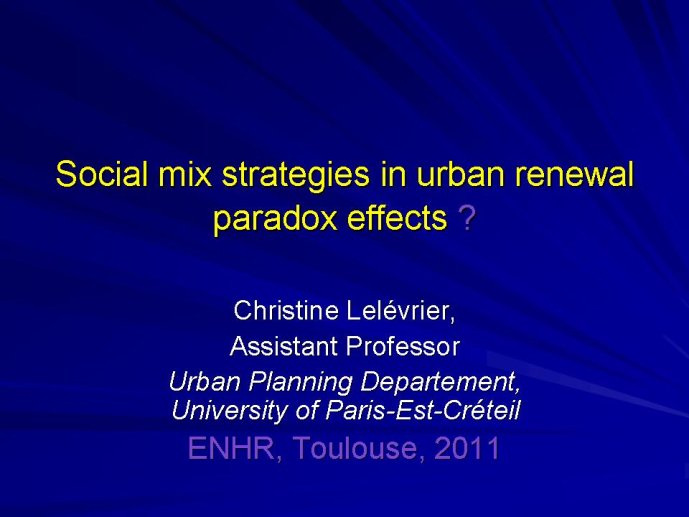
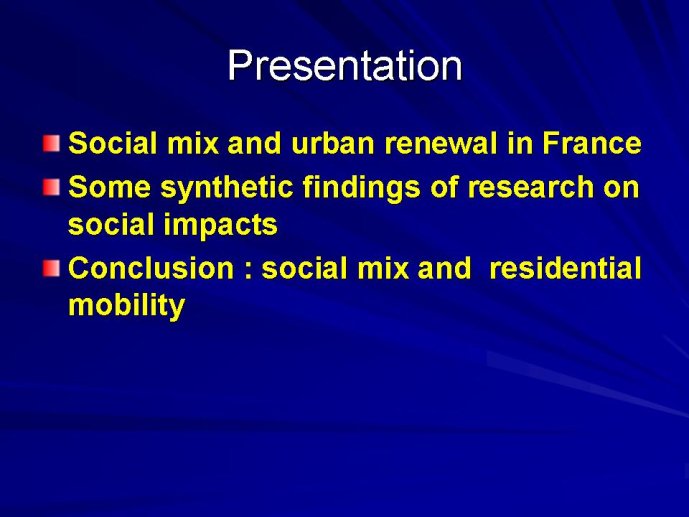
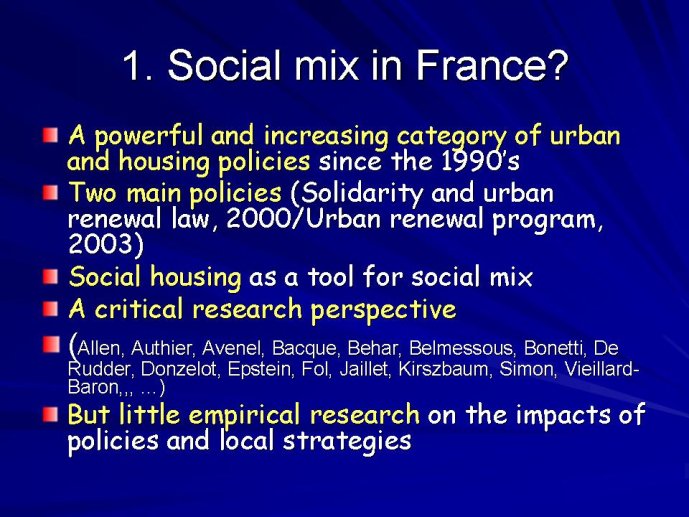
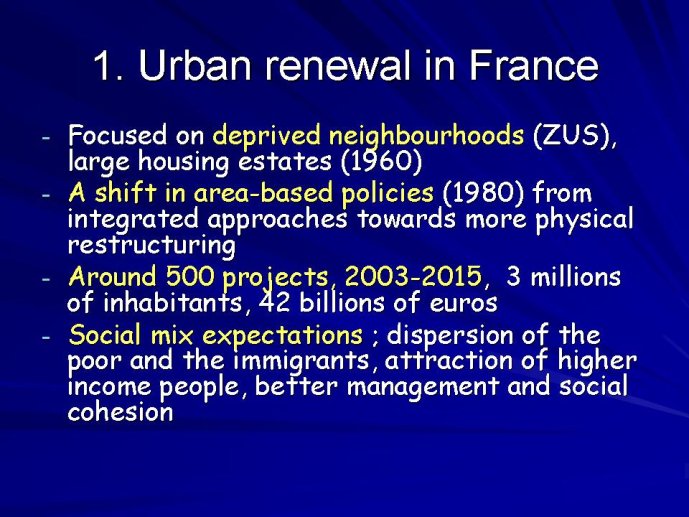
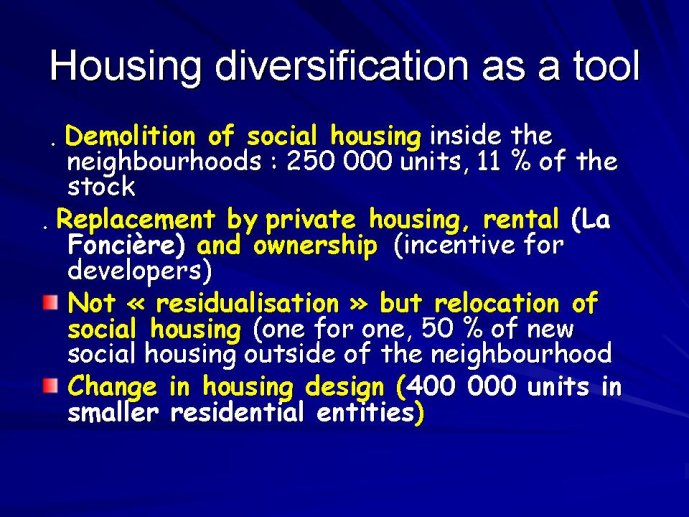
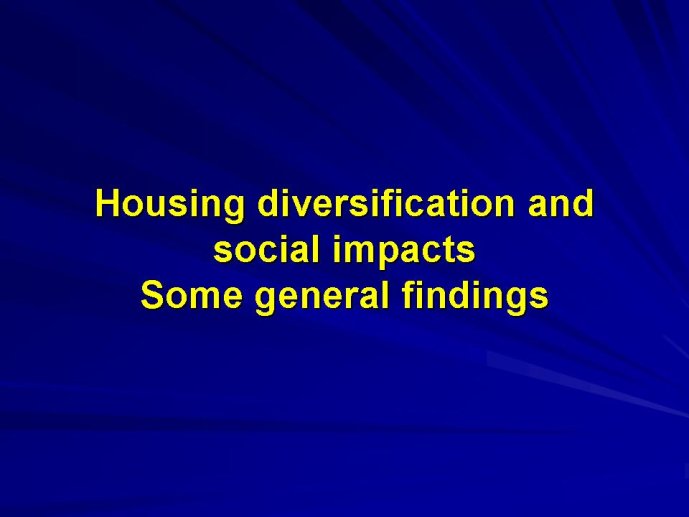
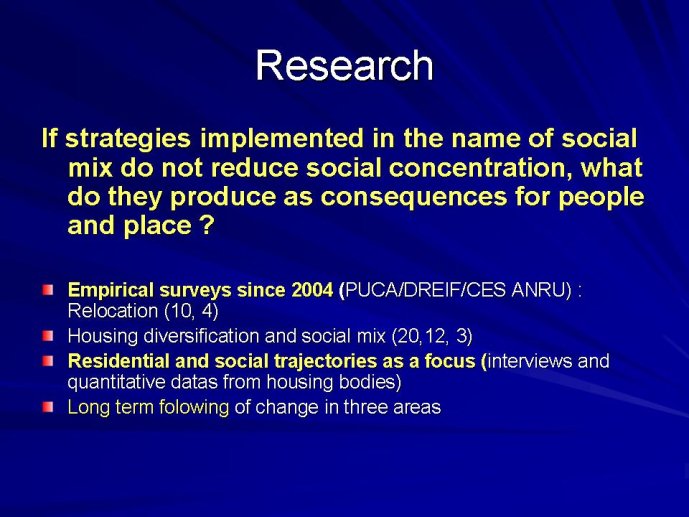
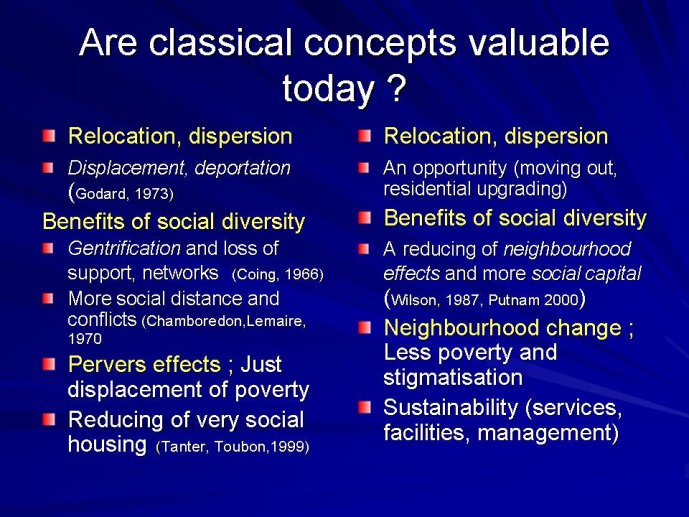
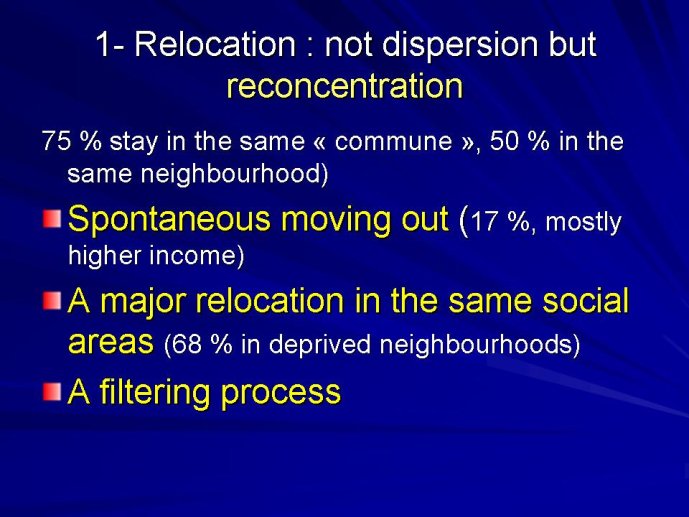
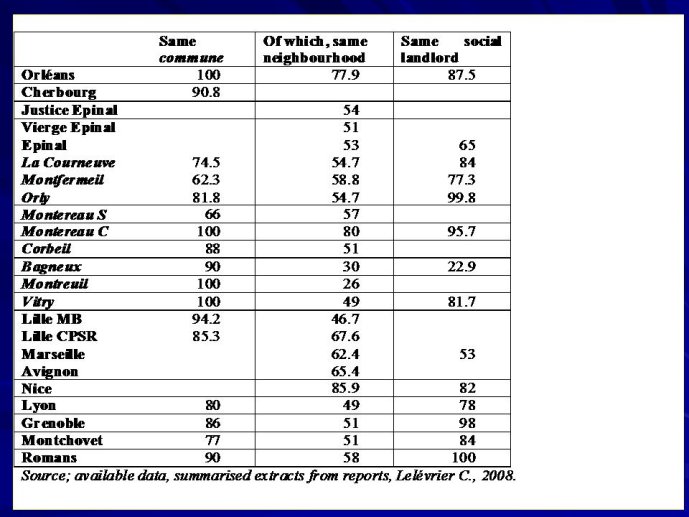
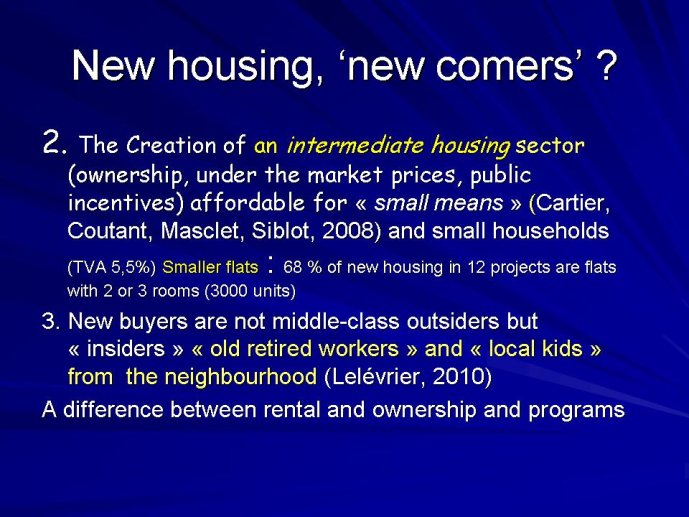
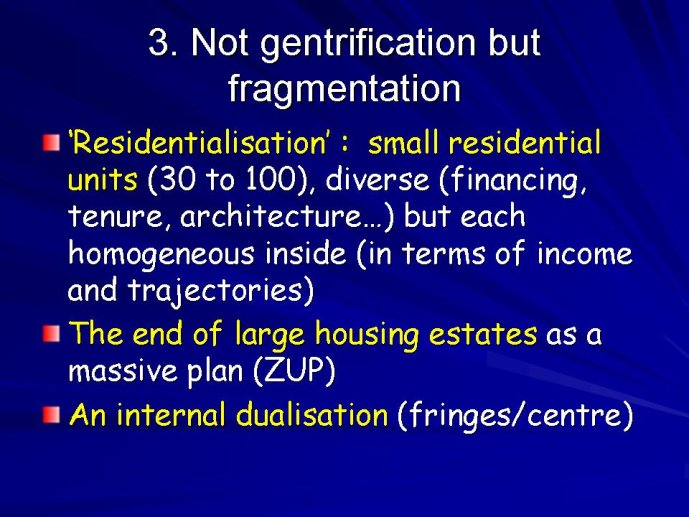
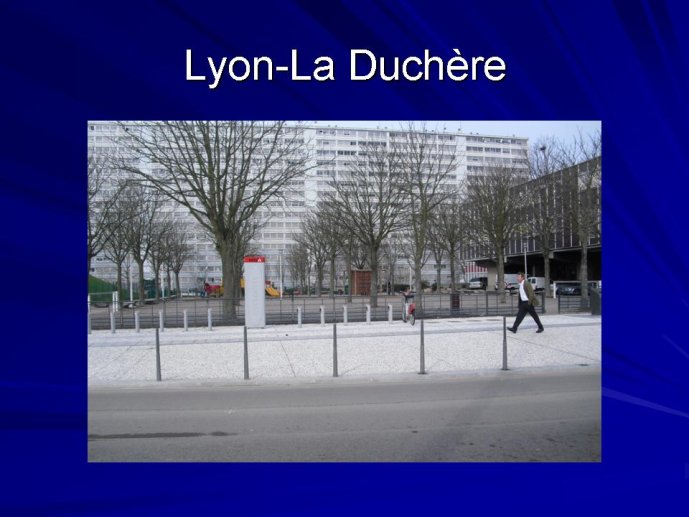
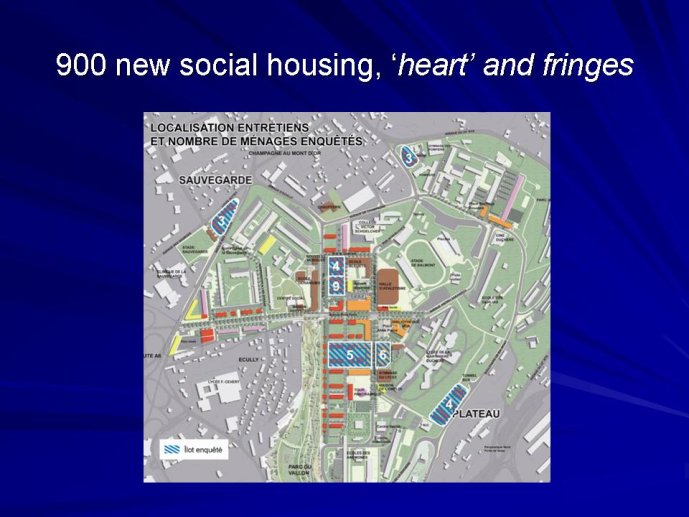
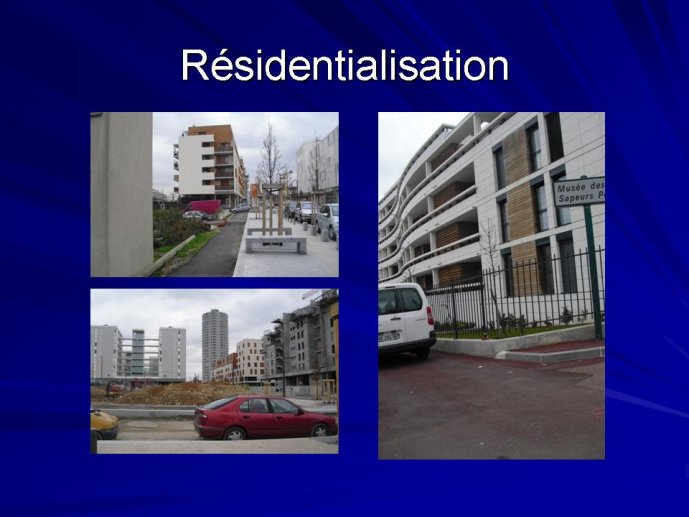
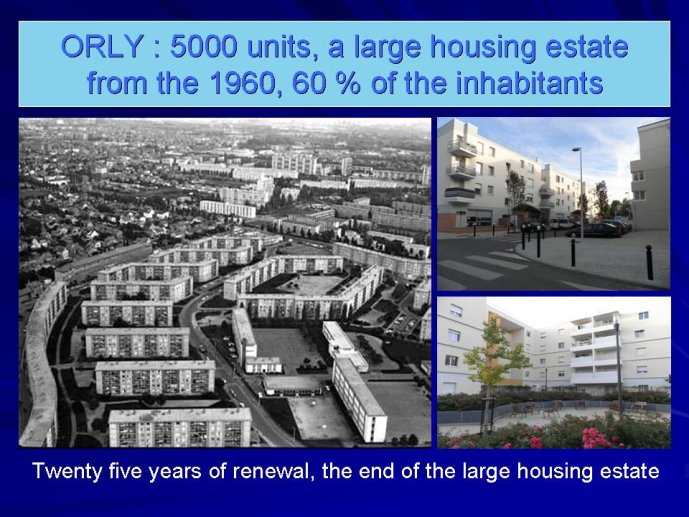
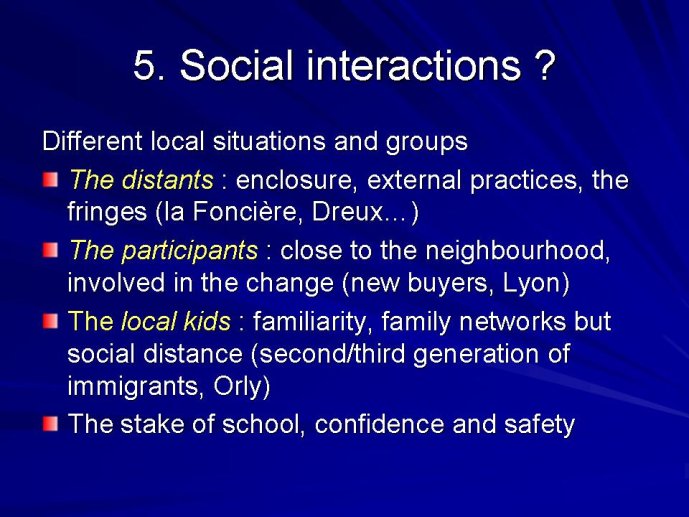
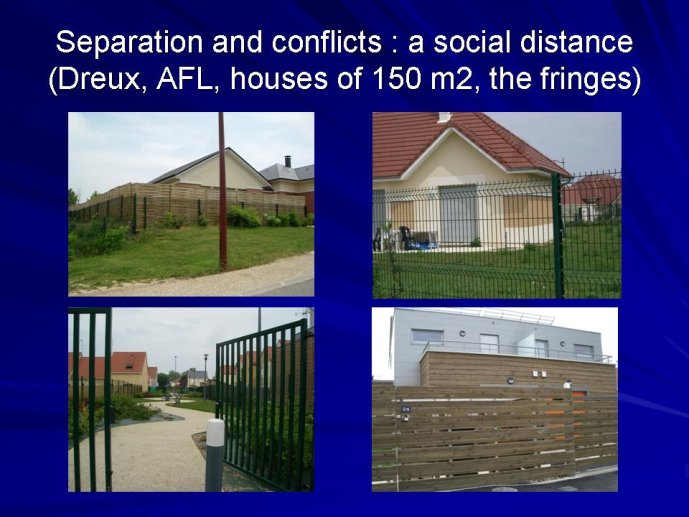
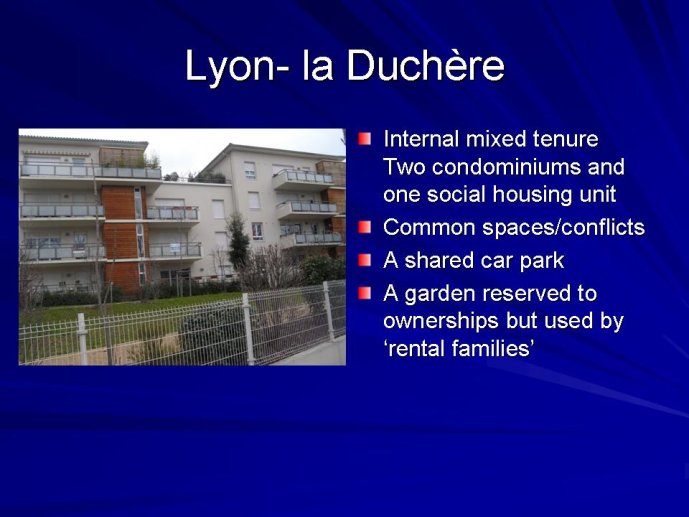
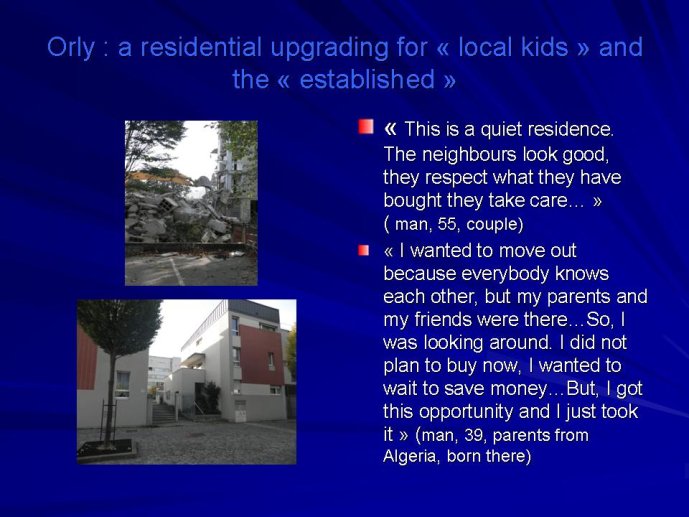
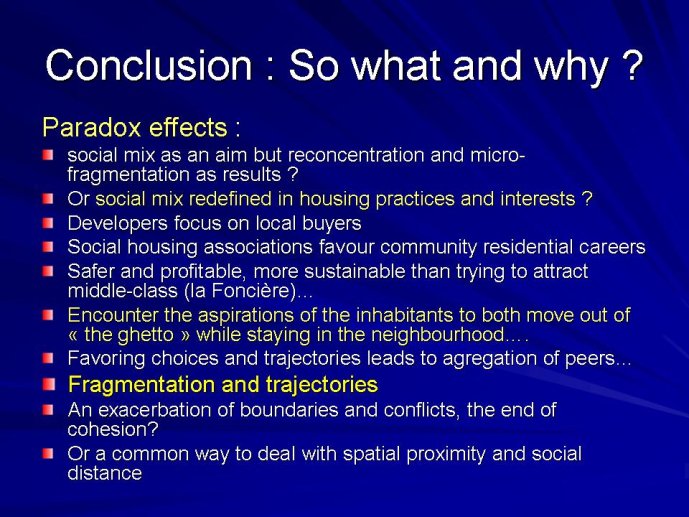
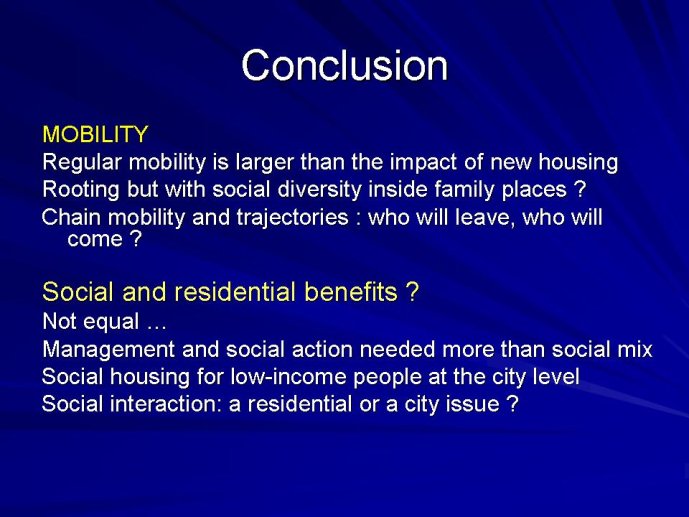

![Mixité, an urban and housing issue: ouverture du colloque [VO] / P. Boelhouwer, F. Ménard et al.](https://vod.canal-u.tv/videos/media/images/themes/sciences_humaines_sociales_de_l_education_et_de_l_information/sciences_de_la_societe/sociologie_anthropologie_ethnologie/sociologie/services_et_problemes_sociaux/mixite_an_urban_and_housing_issue_ouverture_du_colloque_vo_p_boelhouwer_f_menard_et_al/2175742-14-fre-FR/mixite_an_urban_and_housing_issue_ouverture_du_colloque_vo_p_boelhouwer_f_menard_et_al.gif)
![Mixité, an urban and housing issue: ouverture du colloque [VF] / P. Boelhouwer, F. Ménard et al.](https://vod.canal-u.tv/videos/media/images/themes/sciences_humaines_sociales_de_l_education_et_de_l_information/sciences_de_la_societe/sociologie_anthropologie_ethnologie/sociologie/services_et_problemes_sociaux/mixite_an_urban_and_housing_issue_ouverture_du_colloque_vf_p_boelhouwer_f_menard_et_al/2161572-30-fre-FR/mixite_an_urban_and_housing_issue_ouverture_du_colloque_vf_p_boelhouwer_f_menard_et_al.gif)
![Mixité, an urban and housing issue: introduction au colloque [VF]/ M.-C. Jaillet, Jean-Claude Driant](https://vod.canal-u.tv/videos/media/images/themes/sciences_humaines_sociales_de_l_education_et_de_l_information/sciences_de_la_societe/sociologie_anthropologie_ethnologie/sociologie/services_et_problemes_sociaux/mixite_an_urban_and_housing_issue_introduction_au_colloque_vf_m_c_jaillet_jean_claude_driant/2162823-25-fre-FR/mixite_an_urban_and_housing_issue_introduction_au_colloque_vf_m_c_jaillet_jean_claude_driant.gif)
![Mixité, an urban and housing issue: introduction au colloque [VO]/ M.-C. Jaillet, Jean-Claude Driant](https://vod.canal-u.tv/videos/media/images/themes/sciences_humaines_sociales_de_l_education_et_de_l_information/sciences_de_la_societe/sociologie_anthropologie_ethnologie/sociologie/services_et_problemes_sociaux/mixite_an_urban_and_housing_issue_introduction_au_colloque_vo_m_c_jaillet_jean_claude_driant/2175399-10-fre-FR/mixite_an_urban_and_housing_issue_introduction_au_colloque_vo_m_c_jaillet_jean_claude_driant.gif)
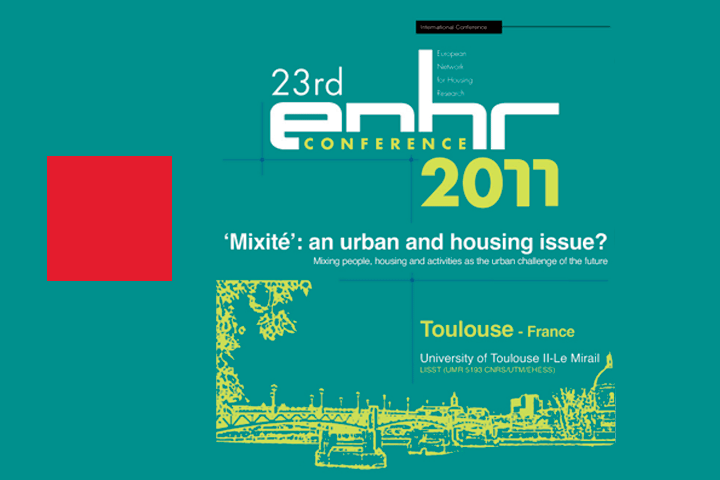
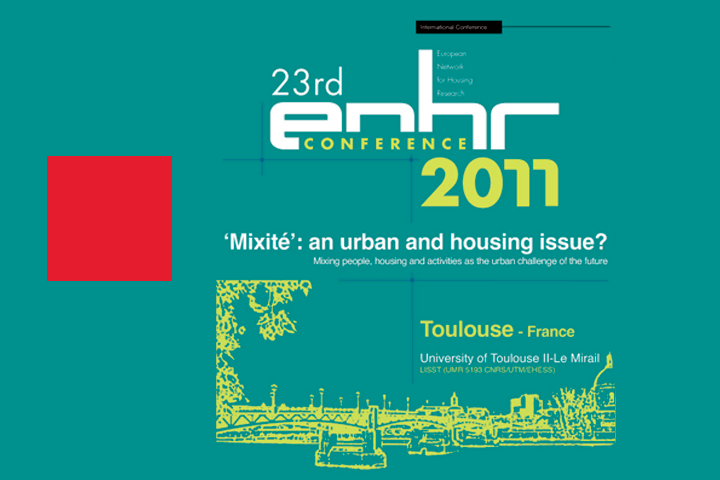
![Implementing "Mixité". Discourses and experiences of politicians and stakeholders: Round Table [VF]](https://vod.canal-u.tv/videos/media/images/themes/sciences_humaines_sociales_de_l_education_et_de_l_information/sciences_de_la_societe/sociologie_anthropologie_ethnologie/sociologie/services_et_problemes_sociaux/implementing_mixite_discourses_and_experiences_of_politicians_and_stakeholders_round_table_vf/2165463-16-fre-FR/implementing_mixite_discourses_and_experiences_of_politicians_and_stakeholders_round_table_vf.gif)
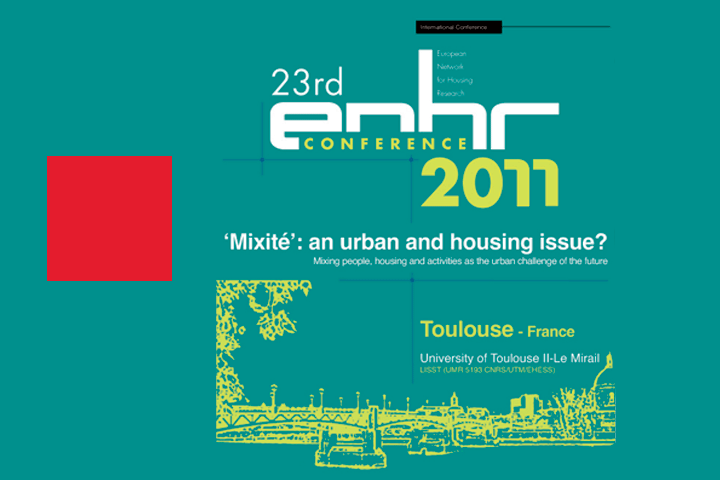
![Approaches, pratices, challenges of mixité in urban contexts: présentation plénière [VF]/ Ian Cole](https://vod.canal-u.tv/videos/media/images/themes/sciences_humaines_sociales_de_l_education_et_de_l_information/sciences_de_la_societe/sociologie_anthropologie_ethnologie/sociologie/services_et_problemes_sociaux/approaches_pratices_challenges_of_mixite_in_urban_contexts_presentation_pleniere_vf_ian_cole/2164972-9-fre-FR/approaches_pratices_challenges_of_mixite_in_urban_contexts_presentation_pleniere_vf_ian_cole.gif)
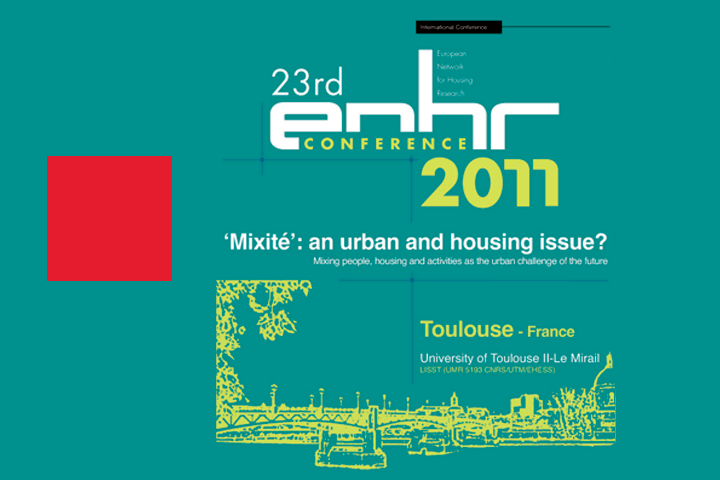
![The grammar of "mixed communities": urban injustice and the Aylesbury Estate [VF] / Loretta Lees](https://vod.canal-u.tv/videos/media/images/themes/sciences_humaines_sociales_de_l_education_et_de_l_information/sciences_de_la_societe/sociologie_anthropologie_ethnologie/sociologie/services_et_problemes_sociaux/the_grammar_of_mixed_communities_urban_injustice_and_the_aylesbury_estate_vf_loretta_lees/2165074-8-fre-FR/the_grammar_of_mixed_communities_urban_injustice_and_the_aylesbury_estate_vf_loretta_lees.gif)
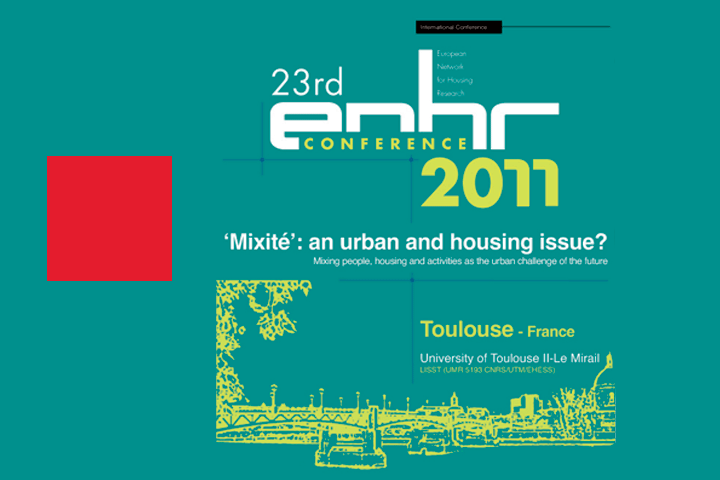
![Social mix strategies in urban renewal: paradoxical effects ? [VF] / Christine Lelévrier](https://vod.canal-u.tv/videos/media/images/themes/sciences_humaines_sociales_de_l_education_et_de_l_information/sciences_de_la_societe/sociologie_anthropologie_ethnologie/sociologie/services_et_problemes_sociaux/social_mix_strategies_in_urban_renewal_paradoxical_effects_vf_christine_lelevrier/2165045-10-fre-FR/social_mix_strategies_in_urban_renewal_paradoxical_effects_vf_christine_lelevrier.gif)